News written by Rich Fiscus (August, 2007)
Written by Rich Fiscus @ 31 Aug 2007 7:16
 HD DVD players priced under $200 are expected from Chinese company Venturer Electronics by the fourth quarter of this year.
HD DVD players priced under $200 are expected from Chinese company Venturer Electronics by the fourth quarter of this year.
Venturer's SHD7000 will be priced at $199, according to a company representative, which would make it the cheapest stand-alone HD DVD player available today.
A statement from Venturer, whose North American headquarters is in Markham, Ontario, touts the player “to be one of the lowest among entry-level HD DVD players.”
There has been speculation for months that Chinese manufacturers would be producing players with low enough price tags to compete with standard DVD players for consumer sales. Prior to now, no announcements regarding these players had been made, although several media reports have been shot down by Wal-Mart, the company generally believed to be key to introducing HD DVD technology to the masses in the United States.
Of course, a lower priced HD DVD player won't provide it's own HD display or replace anyone's movies with new HD versions, assuming they're not movies from Blu-ray only studios.
Read more...
Written by Rich Fiscus @ 27 Aug 2007 5:09
 DVRs have earned the enmity of broadcasters and advertisers alike by enabling viewers to easily skip their least favorite bit of the TV watching experience, commercials. Another group may be moving the DVR further up on its list of disliked technologies in the wake of Ofcom's fourth annual report on the state of the UK's communications market. In the survey, 31 percent of DVR owners said that they are watching fewer DVDs.
DVRs have earned the enmity of broadcasters and advertisers alike by enabling viewers to easily skip their least favorite bit of the TV watching experience, commercials. Another group may be moving the DVR further up on its list of disliked technologies in the wake of Ofcom's fourth annual report on the state of the UK's communications market. In the survey, 31 percent of DVR owners said that they are watching fewer DVDs.
Ofcom's "Heavy viewer" DVR owners, those who watch the largest amount of TV, are least likely to watch DVDs. 53 percent of that group now watch fewer DVDs. But the DVR effect isn't Limited to just heavy TV watchers—the rest of Ofcom's three groups (light, medium, and medium-to-heavy) reported watching anywhere from 28 percent to 34 percent fewer DVDs. In contrast, only 9 percent of DVR owners surveyed by Ofcom report watching more DVDs.
Ofcom's figures are another indication of how radically consumer-friendly technologies like the DVR are affecting the entertainment industry. The TV and motion picture industries do have options other than pushing back with content restrictions, however, thanks to the widespread availability of broadband.
Read more...
Written by Rich Fiscus @ 26 Aug 2007 7:27
 A University of Tennessee student is attempting to quash an RIAA subpoena issued as part of the music industry's war against on-campus file-sharing. Doe #28 is taking a different tack than other defendants have, arguing that providing the information sought by the RIAA would violate his right to privacy under the Family Educational Rights and Privacy Act.
A University of Tennessee student is attempting to quash an RIAA subpoena issued as part of the music industry's war against on-campus file-sharing. Doe #28 is taking a different tack than other defendants have, arguing that providing the information sought by the RIAA would violate his right to privacy under the Family Educational Rights and Privacy Act.
Doe #28's argument is that the information the RIAA is asking for qualifies as private as educational recods, and since he hasn't waived the right to keep those records private the university has no right to release the information to the RIAA or anyone else.
The problem with this approach actually seems fairly straght forward. Although educational records are generally considered private, the Family Educational Rights and Privacy Act does allow records to be released to comply with a judge's order or subpoena. In other words, unless the subpoena can be shown to be unlawful the school is required to release the information over.
The subpoena follows the same tactics record companies have used for other cases involving college students. That process gave all defendants in the case 15 days from the time they were served with the subpoena to file an objection. So far no other defendants have joined Doe #28 in his fight.
Read more...
Written by Rich Fiscus @ 26 Aug 2007 7:17
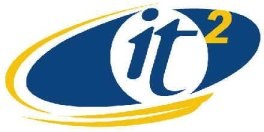 Engineers at the University of California, San Diego, have built the world's highest-resolution computer display, a 55-panel screen capable of zooming in on a live picture of a human brain to give a clear image of a nerve Cell.
Engineers at the University of California, San Diego, have built the world's highest-resolution computer display, a 55-panel screen capable of zooming in on a live picture of a human brain to give a clear image of a nerve Cell.
The system located at the UCSD division of the California Institute for Telecommunications and Information Technology (also known as Calit2) has a screen Resolution up to 220 megapixels, which is 100 times higher than a high-definition TV, Falko Kuester, Calit2 professor for visualization at UCSD's Jacobs School of Engineering, told InformationWeek Friday.
The previous record was held by a 50 panel 200 Megapixel display in UC Irvine, which ironically shares a 2Gbps fiber optic Ethernet connection with the new system.
Both systems are powered by 80 nVidia Quadro FX 5600 GPUs. However, while the older Irvine system uses 50 Apple 30-inch Cinema Displays, powered by 25 Power Mac G5s running the Mac OS X operating system, the new display is made up of 55 Dell displays and 18 Dell XPS computers.
Read more...
Written by Rich Fiscus @ 26 Aug 2007 7:08
 DirecTV's NFL Sunday Ticket service will be making the leap to computer screens across the country this fall.
DirecTV's NFL Sunday Ticket service will be making the leap to computer screens across the country this fall.
NFL Sunday Ticket already allows viewers to watch NFL football games that wouldn't normally be available on their local TV stations. The company has now announced that anyone signing up for their SuperFan package will also be able to stream live games directly to their computer. This is expected to be a first step towards the NFL extending their broadcast reach to realms beyond the television screen.
The platform requirements and the $368 price tag provide a steep barrier to entry for the NFL's streaming package, but that may be exactly what the NFL wants. The NFL has taken a very protective approach to online video, more so than just about any other sports league. That's why you'll be hard pressed to find any recent game footage online anywhere other than NFL.com.
So why would they want to price the product out of the reach of many consumers? It may come down to a couple of factors. First, by keeping the price high, participation will be low enough to help avoid potential broadcast issues. It's also possible they simply don't want to make the program mainstream until everyone is agreed on how the details for the service will work out. That may not happen until after a season or more of experimentation.
Read more...
Written by Rich Fiscus @ 26 Aug 2007 6:56
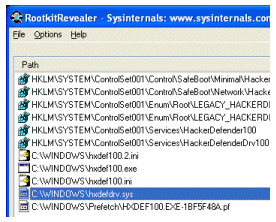 News has been spreading through the gaming community that the PC version of the game Bioshock installs a rootkit on your computer. However, those reports aren't actually correct.
News has been spreading through the gaming community that the PC version of the game Bioshock installs a rootkit on your computer. However, those reports aren't actually correct.
The report seems to have initially come from a website called Gaming Bob, where it was accurately reported that Microsoft's RootkitRevealer software found some suspicious registry entries after Bioshock, using SecuROM protection, was installed.
The problem is that RootkitRevealer doesn't actually identify rootkits. What it does is look for suspicious registry entries that may belong to a rootkit.
According to the SecuROM website, "SecuROM™ will install a Windows™ service module called “User Access Service” (UAService) on your system. This is a standard interface commonly used by several other applications as well. It is no spyware or rootkit at all. This module has been developed to enable users without Windows™ administrator rights the ability to access all SecuROM™ features. Please be assured that this service is installed only for security and convenience purposes. Since it is a standard Windows™ service, you can stop and delete this service, like any other Windows™ service. If deleted, the access for non-administrator users to SecuROM™ protected applications will be affected.
Read more...
Written by Rich Fiscus @ 26 Aug 2007 6:38
 According to a study from consumer research company OTX and social networking site eCrush, teenagers don't really use the internet either to find or to download movies.
According to a study from consumer research company OTX and social networking site eCrush, teenagers don't really use the internet either to find or to download movies.
The study concluded that the majority of teens learn about the latest movies from more traditional TV ads and theatrical trailers. Only 15% get their information from entertainment web sites.
Also from the study, 27% of teen generally go to see movies the weekend they open, and nearly half go within the first two weeks.
In stark contrast to the movie industry's claims of lost revenue from piracy, teens also responded that when they miss a movie in the theater they're more likely to rent or buy it on DVD than download it illegally.
Source: Yahoo News
Written by Rich Fiscus @ 25 Aug 2007 7:12
 The island country of Antigua believes they have the right, under international law, to violate United States intellectual property laws.
The island country of Antigua believes they have the right, under international law, to violate United States intellectual property laws.
Although Antigua is better known internationally for their beaches and tourist resorts, online casinos have become a large and important part of the national economy. It's the country's second largest employer.
The complaint stems from U.S. laws that make even online gambling illegal in most parts of the country. Antigua claims this violates their rights as a member of the WTO (World Trade Organization) because it harms their economy.
The WTO has already ruled against the U.S. in the matter, and the ruling was later held up on appeal.
There are really two questions raised, and either by itself could have a serious affect on world trade. The first is what impact membership in the WTO can really have on national or local laws in member states.
In the United States, for example, treaty ratification only requires the President's signature and a 2/3 majority in the Senate. This doesn't meet the requirements for passage of a law.
The other issue is WTO authority. If they back down from the U.S. the authority of any action against other members, and therefore the legitimacy of the organization as anything more than a figurehead, is automatically in question.
Read more...
Written by Rich Fiscus @ 25 Aug 2007 6:50
 The Digital Media Association (DiMA) and SoundExchange announced an agreement yesterday to cap the $500 per-channel webcasting fees at $50,000—a victory for large webcasters that stream thousands of stations.
The Digital Media Association (DiMA) and SoundExchange announced an agreement yesterday to cap the $500 per-channel webcasting fees at $50,000—a victory for large webcasters that stream thousands of stations.
SoundExchange is an organization that collects royalties for many companies, including both RIAA members and independent labels.
Large webcasters technically have individual channels for each user, making their royalty responsibility under the recently passed Copyright Royalty Board (CRB) webcasting rates, would be more than the revenue generated by their service. The new rates set a $500 minimum payment per unique channel.
The rates are based on an entertainment industry proposal, which the CRB essentially passed as submitted. Not surprisingly they demonstrate a clear disregard for how online radio's business model works. It's really just another example of the industry reaching out for any source of revenue they can as CD sales fall.
They already have a royalty model established with satellite radio services that exceeds what they get from terrestrial broadcasts. The webcaster rates go even further, and the music industry would like to extend them to terrestrial broadcasts.
Read more...
Written by Rich Fiscus @ 25 Aug 2007 6:43
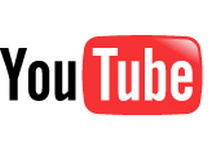 Google says that content makers will have control over which videos have ads overlaid on them when they get posted to viral video site YouTube.
Google says that content makers will have control over which videos have ads overlaid on them when they get posted to viral video site YouTube.
They want to get more feedback on the advertising they've just recently added to some videos. This seems especially important as site visitors threaten to take their viewing somewhere ellse - and right now there are a lot of somewhere else video sites popping up.
Only videos from content creators that have signed up for the advertising scheme, called InVideo, will host ads, leaving the majority of videos on YouTube free of the overlays, a Google spokesman said today. Advertisers will still be able to reach a large audience through YouTube videos even if the company places ads in only a small portion of videos.
"And our users are not shy about telling us what they like and what they don't, so it behooves us to be careful," said Shashi Seth, YouTube group product manager, in an e-mailed statement.
YouTube's problem right now is the same as countless other video sites. They have to find a revenue stream somewhere in their service, and advertising is the logical place to look.
Read more...
Written by Rich Fiscus @ 25 Aug 2007 6:30
 A push to sell more expensive brand name models is currently dominating shelves at a store near you.
A push to sell more expensive brand name models is currently dominating shelves at a store near you.
As interest in lower priced LCD televisions as an alternative to expensive plasma models has risen, profit per unit sold has fallen for retailers.
The problem with this strategy is that consumers are primarily buying because prices have come down a substantial amount. With prices of higher end models currently in stores matching prices of the low cost alternative consumers have been watching, the Christmas buying season may not see increased profits.
The price promotions by the minor makers propelled Vizio from the No. 4 L.C.D. television maker in the American market in the first quarter of 2007 to the best-selling maker in the second quarter of 2007. “Half the reason that consumers buy our sets is because of lower prices,” said William Wang, Vizio’s chief executive. “But our goal was never to compete on price only. We have a great product.”
Perhaps as worrisome to retailers are signs that growth is slowing, said Gregory Melich, a retail-sector analyst at Morgan Stanley. “For the past few months, growth in the total TV market has been zero or negative, because demand is not there at these price points,” he said.
Read more...
Written by Rich Fiscus @ 25 Aug 2007 6:08
 The European Commission attempts to simplify European licensing for mobile satellite services could increase demand for broadcast television to handheld devices like mobile phones.
The European Commission attempts to simplify European licensing for mobile satellite services could increase demand for broadcast television to handheld devices like mobile phones.
The Commision has generally agreed to adopt the DVB-H standard, sparking mobile providers across the continent to start seriously start looking for ways to profitably offer mobile broadcasts.
Besides the broadcast format, the proposed standards would make it possible for a mobile operator to obtain licensing across the EU from a single authority, instead of the current system where permits for different countries must be applied for in each one.
Several European mobile phone companies, including Vodafone Group PLC, have expressed interest in mobile satellite technology for TV service as well as broadband data.
Source: Yahoo News
Written by Rich Fiscus @ 24 Aug 2007 7:59
 The Fox police drama was available online before it's broadcast premier in September.
The Fox police drama was available online before it's broadcast premier in September.
It's available without commercials for a limited time on the Fox, AOL, Yahoo, TV Guide, and IGN websites. Those portals are all involved with the still unnamed venture by NBC Universal and Fox owner News Corp.
TV shows offered for Streaming online directly from television networks are becoming fairly common, but this is the first time a major series premiere has gotten a preview this way.
Earlier this summer, though, several fall television pilots were leaked to P2P networks.
Source: Yahoo News
Written by Rich Fiscus @ 24 Aug 2007 7:21
 Nintendo's Wii continues to lead the pack of current-generation video game consoles, according to NPD Group. However, the real eye-opener, from NPD's perspective, is the unexpected mid-summer sales boom involving just about everything related to the games.
Nintendo's Wii continues to lead the pack of current-generation video game consoles, according to NPD Group. However, the real eye-opener, from NPD's perspective, is the unexpected mid-summer sales boom involving just about everything related to the games.
Nintendo sold about 425,000 Wii consoles in the United States during July, more than double the 170,000 Microsoft Xbox 360s that left the shelves and almost triple the 159,000 Sony PlayStation3s that were sold, said NPD.
"From a PlayStation perspective, coming out of E3 (the Electronic Entertainment Expo) we were really anticipating a good reaction to our new hardware pricing announced on July 9th, and we were obviously very pleased to see that PS3 sales increased with 159K units sold at retail for the month of July, which puts us up 61 percent over June numbers," Sony Analyst Relations Manager Mariam Sughayer wrote in a blog.
The sales boost was partly caused by the new pricing, but might also be related to "a great deal of anticipation for the line up of games just around the corner, including 'Warhawk' (Aug. 28), 'Lair' (Sept. 4) and 'Heavenly Sword' (Sept. 12)," she said.
Read more...
Written by Rich Fiscus @ 24 Aug 2007 7:12
 RHI Entertainment, a prolific creator of made for TV movies has plans to release 24 original films directly on VOD (Video on Demand).
RHI Entertainment, a prolific creator of made for TV movies has plans to release 24 original films directly on VOD (Video on Demand).
The studio plans to provide two new original VOD movies to Time Warner Cable, Bright House Networks, Cablevision, and Cox Communications. After their VOD debuts, they'll be aired on channels like the Sci-Fi Channel, Spike TV, USA, and Livetime. Finally they'll be released on DVD.
However, Genius Products, which handles home video distribution for RHI, is still negotiating on the release dates and hopes to bring at least some of the films to DVD at the same time they hit VOD, company spokesman Michael Edelson said.
"If it's available on VOD beforehand, it ends up cannibalizing some of our sales," Edelson said.
Major movie studios, with the notable exception of Sony, have been testing simultaneous VOD and DVD releases.
Source: Video Business
Written by Rich Fiscus @ 24 Aug 2007 6:54
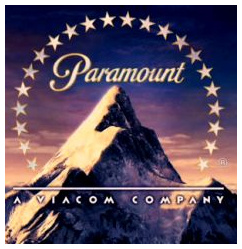 After Paramount Home Entertainment announced last week that they'll be releasing new titles exclusively on HD DVD, instead of both HD DVD and Blu-ray, retailers were left to explain to their customers why "Blades of Glory", which had been scheduled for an August 28 Blu-ray release, won't be available in that format.
After Paramount Home Entertainment announced last week that they'll be releasing new titles exclusively on HD DVD, instead of both HD DVD and Blu-ray, retailers were left to explain to their customers why "Blades of Glory", which had been scheduled for an August 28 Blu-ray release, won't be available in that format.
Hastings Entertainment did not have time to change weekend circulars promoting Blades of Glory on Blu-ray. Instead, store managers will place disclaimer signs aside Blades of Glory displays, explaining to people that due to recent studio decisions, the film is no longer available on that format.
“I think there will be a lot of people who purchased BD titles that will be upset that they can’t get [Blades of Glory] on Blu-ray,” said Mason Goodfellow, Hastings video category manager. “They are now questioning about what they got in the past, where they invested money in Blu-ray already.”
It may be interesting to see what happens as Paramount titles that people were planning to eventually buy on Blu-ray become available on HD DVD. We may get more evidence about how much difference the availability of particular movies make to the success of a format.
Read more...
Written by Rich Fiscus @ 24 Aug 2007 6:40
 In January there was much speculation that low priced Chinese DVD players would be available well before the end of this year, including a deal supposedly in the works by retailer Wal-Mart which were eventually shot down.
In January there was much speculation that low priced Chinese DVD players would be available well before the end of this year, including a deal supposedly in the works by retailer Wal-Mart which were eventually shot down.
More than half way through the year, no such deal has emerged, and along with questions about how long it would be until the Chinese players are more than a rumor, speculation about how much impact such a move will really have is rampant.
In an e-mail response to a question about the mass merchant’s fourth-quarter high-definition plans and whether it will bring in players from Chinese manufacturers this year, a Wal-Mart spokeswoman said, “We are still evaluating the situation and not making a decision to go solely with one over the other right now."
Despite HD DVD players being priced much lower than equivalent Blu-ray players, the inclusion of BD in the PS3 and broader studio support have kept the battle between the two fairly even.
Combine those facts with consumer confusion about both products, and you have a situation that doesn't look good for player sales at any price.
Source: Video Business
Written by Rich Fiscus @ 24 Aug 2007 2:41
 A new Digital Video Fundamentals guide is available. The guide, which covers the basics of lossy video Compression, can be found at
A new Digital Video Fundamentals guide is available. The guide, which covers the basics of lossy video Compression, can be found at
https://www.afterdawn.com/guides/archive/digital_video_fundamentals_-_lossy_compression.cfm
More guides for video encoding and more can be found in our guides section.
Written by Rich Fiscus @ 23 Aug 2007 7:14
 A new study from the Institute for Policy Innovation adds a new twist to music industry estimates on the cost of piracy, claiming piracy related costs to the economy of $12.5 Billion.
A new study from the Institute for Policy Innovation adds a new twist to music industry estimates on the cost of piracy, claiming piracy related costs to the economy of $12.5 Billion.
While past studies have focused on the assumption that each unauthorized download equates to a lost sale, this new study goes a step further and extrapolates losses to the entire US economy based on that assumption.
Along with the multibillion-dollar loss, piracy also is hindering job growth, according to the IPI. The US economy will lose 71,060 jobs due to piracy, with almost 38 percent of those (26,860) in the recording industry. That amounts to $2.7 billion in lost earnings. Piracy also hits Uncle Sam—as well as state and local governments—right in the pocketbook, with at least $422 million in lost tax revenues.
It essentially assumes that two of every three downloaded songs would have been purchased, were it not for file-sharing. This is a very high percentage and one not justified by our own knowledge of file-sharing trends. The study needs to make a firm argument for why this percentage is so high.
Given IPI's track record (which includes this gem from the aforementioned open-source study: "Open source will go the way of other IT industry fads that were once trumpeted as the way of the future, like Macintosh computers, business AI, 4GL programming languages and Y2K") and ideological bent, the results of this study are rather unsurprising.
Read more...
Written by Rich Fiscus @ 23 Aug 2007 6:52
 YouTube executives are getting no shortage of criticism from site visitors after launching their InVideo advertising Wednesday.
YouTube executives are getting no shortage of criticism from site visitors after launching their InVideo advertising Wednesday.
Users responding to an official blog post requesting feedback overwhelmingly disapprove of the ads, including one viewer who made his point with a video.
One comment said "You guys ripped off VideoEgg. What happened to innovation?"
VideoEgg, which apparently introduced an advertising system similar to YouTube's current approach even has a banner on their main page saying "Welcome YouTube, Seriously. We invented the video Overlay ad about a year ago. We are delighted that the market is finally catching on to a vital new approach to video advertising."
While YouTube has made no claim to inventing the technology they're using for advertising, it would certainly be more than a little ironic if they ended up in another court battle over royalty payments for it.
Source: Computerworld
Written by Rich Fiscus @ 23 Aug 2007 6:37
 Sony seems to be moving forward with plans to make the PS3 a home entertainment center for your living room by turning it into a DVR.
Sony seems to be moving forward with plans to make the PS3 a home entertainment center for your living room by turning it into a DVR.
The device, called PlayTV, is a combined television receiver and DVR, will be able to record live television and store the video on either a Playstation3 or Playstation Portable for viewing later.
PlayTV, which includes dual DVB tuners, is supposed to be able to record either individual programs or an entire series. It's also capable of receiving and recording hi-def signals. Additionally, when connected to a PS3 it will be able to transmit video to a PSP wirelessly.
It's supposed to be available in Spain, Germany, France, Italy, and Britain some time in 2008.
Source: Yahoo News
Written by Rich Fiscus @ 23 Aug 2007 6:13
 Google has decided to offer real refunds to Google Video users who are losing movies they thought they owned until the Download To Own service shut down earlier this month.
Google has decided to offer real refunds to Google Video users who are losing movies they thought they owned until the Download To Own service shut down earlier this month.
The change of heart is the result of customer complaints after the search giant announced that was not only shutting down the service, but was compensating those who are losing access to their videos by giving them Google Checkout credits instead of money.
Since Google Checkout only works with a small number of online shops, most of their customers didn't find this to be a fair exchange.
"When your friends and well-intentioned acquaintances tell you that you've made a mistake, it's good to listen," Bindu Reddy, Google's video product manager, said on the company's official blog.
Google also is extending through February 2008 the ability to view video already purchased, although it has stopped letting people buy new ones. Before, the video would have expired Aug. 15.
Company spokesman Gabriel Stricker would not say how much the refunds would cost, but said they won't materially affect the company's finances. He also described the number of complaints as "limited."
Source: Associated Press
Written by Rich Fiscus @ 23 Aug 2007 5:54
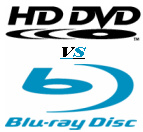 Despite Paramount and Dreamworks SKG deciding to back HD DVD exclusively, research firm Understanding & Solutions still believes Blu-ray Disc will prove victorious in the high-definition format war/
Despite Paramount and Dreamworks SKG deciding to back HD DVD exclusively, research firm Understanding & Solutions still believes Blu-ray Disc will prove victorious in the high-definition format war/
“The weight of industry support is still very much behind Blu-ray,” said U&S director Jim Bottoms, preceding his arguments by noting that U&S remains a private entity, not financially benefiting from either side. “Fifty-eight percent of the high-def market comes from Blu-ray-exclusive business,” based on first quarter video shipments, he said.
Bottoms broke down studio market share within Blu-ray-exclusive studios, showing that Walt Disney Studios Home Entertainment commands a 14% piece; 20th Century Fox Home Entertainment, 16%; Sony Pictures Home Entertainment, 18%; MGM Home Entertainment, 3%; and Lionsgate, 7%.
The HD DVD-only side accounts for 23% of the market, including 10% from Universal Studios Home Entertainment share and 13% from Paramount Home Entertainment. Warner Home Video, producing in both HD DVD and Blu-ray, accounts for 19% of the high-def market.
Read more...
Written by Rich Fiscus @ 23 Aug 2007 1:00
 The third part of our new Basic DVD Project is available.
The third part of our new Basic DVD Project is available.
You can find the guide, entitled Basic DVD Authoring Project Part 3 - Prepare Audio Assets at
https://www.afterdawn.com/guides/archive/basic_dvd_authoring_project_part_3_-_preparing_audio_assets.cfm
More guides for DVD Authoring and more can be found in our guides section.
Written by Rich Fiscus @ 22 Aug 2007 8:22
 Comcast is vehemently denying claims that they're filtering BitTorrent traffic on their network.
Comcast is vehemently denying claims that they're filtering BitTorrent traffic on their network.
Broadband providers aren't exactly fans of BitTorrent because use of the protocol can create an excessive amount of traffic on their networks. Last week On TorrentFreak, a blog claimed that Comcast is cutting off BitTorrent transfers and even decreasing download speeds.
Comcast spokesman Charlie Douglas denied that the company was filtering or "shaping" any traffic on its network. He said the company doesn't actively look at the applications or content that its customers download over the network. But Comcast does reserve the right to cut off service to customers who abuse the network by using too much bandwidth.
"More than 99.99 percent of our customers use the residential high-speed Internet service as intended, which includes downloading and sharing video, photos and other rich media," he said. "But Comcast has a responsibility to provide these customers with a superior experience, and to address any excessive or abusive activities usage issues that may adversely impact that experience."
In the rare instances the company has to enforce its policy, Douglas said that Comcast contacts subscribers to work out the issue. But he firmly reiterated that the company doesn't Filter or throttle back traffic.
Read more...
Written by Rich Fiscus @ 22 Aug 2007 7:50
 Adobe has announce the addition of high definition video to the new version of its Flash Player, which is currently in beta testing.
Adobe has announce the addition of high definition video to the new version of its Flash Player, which is currently in beta testing.
The update, currently called Moviestar, may be an advance response to Microsoft's anticipated launch of its Silverlight product later this year. Earlier in the year Microsoft announced that Silverlight would support hi-def using the VC-1 codec for video and AAC audio.
AVC (H.264) and VC-1 are already competing in the Hi-Def player market with HD DVD and Blu-ray both supporting them. AVC is also gaining accpetance in the HD camcorder market.
Hopefully more competition between the two formats will ultimately lead to improvements in both.
Source: Information Week
Written by Rich Fiscus @ 22 Aug 2007 7:21
 7digital, a London based music download service, is going to be the first company to deliver EMI's Rolling Stones catalog without DRM.
7digital, a London based music download service, is going to be the first company to deliver EMI's Rolling Stones catalog without DRM.
The 24 albums are delivered at the high-quality 320 kbps rate, and for the next four weeks will exclusively retail at 7digital's website at 5.49 pounds each ($10.88). After the promotion expires, the albums will cost 7.99 pounds ($15.83) to download.
"To be the first and only music download service to make high quality downloads of the Rolling Stones' tracks available is a phenomenal coup for us," said 7digital's managing director Ben Drury."
Apple's iTunes already sells DRM free files from EMI's catalog, but uses the AAC format, which allows for higher compression at the same quality but doesn't have the nearly universal support that MP3 does.
Source: Reuters
Written by Rich Fiscus @ 22 Aug 2007 7:04
 YouTube is finally trying to take advantage of parent Google's advertising experience to create a revenue stream through advertising.
YouTube is finally trying to take advantage of parent Google's advertising experience to create a revenue stream through advertising.
Since buying YouTube last year, Google has been cautious about pushing advertising on viewers, although in order to make money, clearly some new form of revenue must be identified.
On Wednesday, YouTube will launch a way to link video clips with advertising it says makes sense contextually, with the aim of spurring viewers to seek more information.
Rather than load a commercial to the start or end of a clip, YouTube will introduce an animated Overlay across the bottom of its video player screen.
The overlaid ads will appear before the clip begins, giving the opportunity to click to watch an ad. If the viewer doesn't click on the link within 10 seconds it's supposed to simply disappear.
Source: Reuters
Written by Rich Fiscus @ 22 Aug 2007 6:10
 Vizio, which got its start helping Gateway enter the LCD business, has something to be proud of for itself. It's quietly become the top LCD vendor in the North America.
Vizio, which got its start helping Gateway enter the LCD business, has something to be proud of for itself. It's quietly become the top LCD vendor in the North America.
According to market research firm iSuppli, Vizio was the top North American LCD vendor during the second quarter of the year.
Vizio in the second quarter shipped 606,402 LCD-TVs in North America, up a stunning 76.4 percent increase from 343,704 in the first quarter, iSuppli said. This boosted Vizio's North American unit market share to 14.5 percent, up from 9.4 percent in the first quarter.
With all-digital television on the horizon, there's likely to be an explosion in LCD and other flat panel technologies. Any company that takes good advantage of that market should end up in a very good financial position.
Source: PC Magazine
Written by Rich Fiscus @ 21 Aug 2007 4:11
 On Tuesday Wal-mart started selling DRM free music downloads on its website.
On Tuesday Wal-mart started selling DRM free music downloads on its website.
The world's largest retailer said their new MP3 catalog includes songs from major record labels without any form of DRM that will play on almost any device. That includes iPods and iPhones, and the Microsoft Zune.
Apple's iTunes Plus offers DRM free downloads for $1.29 -- higher than the 99 cent price of its typical downloads.
Wal-Mart said it will still sell its Windows Media Audio-format downloads, which often come with copyright protection limiting where songs can be replayed, for 88 cents per track.
It will be interesting to see how well Universal's DRM free tracks sell in particular because the same songs are only available with DRM from Apple's service. If they sell well enough it could be a sign of stiff competition for the current undisputed leader in commercial music downloads.
Source: Reuters
Written by Rich Fiscus @ 21 Aug 2007 3:58
 Viacom and RealNetworks are hoping to take a bite out of Apple's successful iTunes service with a joint venture announced Tuesday.
Viacom and RealNetworks are hoping to take a bite out of Apple's successful iTunes service with a joint venture announced Tuesday.
MTV's Urge music service will be merged into RealNetworks' Rhapsody to form a new company called Rhapsody America. The service will be useable on computers and music players, as well as being integrated into Verizon's VCast service for mobile phones.
MTV will be marketing the service heavily beginning in September, and will also help with programming.
The companies did not say how much the new service will cost. Rhapsody currently charges subscribers $12.99 a month for unlimited listening and sells individual tracks for 99 cents, with a discount for subscribers.
The current trend in online music ventures seems to be based around entertainment company sponsorship. This may be necessary for any company that wants to take a piece of Apple's pie, but it remains to be seen what this means to consumers in the long run.
Source: Associated Press
Written by Rich Fiscus @ 21 Aug 2007 11:47
 The second part of our Basic DVD Project guide series is up now. It covers analysis of source files and formulating a plan for creating DVD assets from it.
The second part of our Basic DVD Project guide series is up now. It covers analysis of source files and formulating a plan for creating DVD assets from it.
You can find the guide, entitled Basic DVD Authoring Project Part 2 - Analysis at
https://www.afterdawn.com/guides/archive/basic_dvd_authoring_project_part_ii.cfm
The first guide, Basic DVD Authoring Project Part 1, is at
https://www.afterdawn.com/guides/archive/basic_dvd_project_part_i.cfm
More guides for DVD authoring and more can be found in our guides section.
Written by Rich Fiscus @ 20 Aug 2007 10:02
 Panasonic announced that they are able to extend the phosphor half life of consumer plasma displays to 100,000 hours, an improvement of around 2/3 over older technology.
Panasonic announced that they are able to extend the phosphor half life of consumer plasma displays to 100,000 hours, an improvement of around 2/3 over older technology.
The two-thirds gain in "life to half brightness" appears in the company's current 2007 model lineup, already available in stores, a spokesman said. If a household watches six hours of TV per day, it would take almost 46 years for the display to dim to half it original brightness.
The company is studying other improvements to 1080p plasma displays, including native 24p playback. This would enable playback of film content at the correct framerate without 2:3 pulldown.
Although improvements intended for relatively expensive displays are nice, it seems like the next 2-5 years will see more of an increase in low end displays to accomodate the transition to digital-only television.
Arguably, unlike improved plasma life, accepting a 24P signal should improve the viewing experience when most material originates on 24fps film.
Source: TWICE
Written by Rich Fiscus @ 20 Aug 2007 9:55
 Although there's been no release announcement, Microsoft is making its upcoming Windows Home Server software available to OEM partners on August 27th. Outside the U.S. it's already being sold to vendors for between $150 and $200.
Although there's been no release announcement, Microsoft is making its upcoming Windows Home Server software available to OEM partners on August 27th. Outside the U.S. it's already being sold to vendors for between $150 and $200.
Despite a complete lack of publicity, visitors to the company's website are able to see it listed for release on the last Monday of the month.
A Microsoft spokeswoman Friday noted that the company does not release system builder or OEM software pricing, and denied that the Aug. 27 date constituted a product launch. "The only thing that is available on Aug. 27 is tech support for system builders," she said.
Windows Home Server (WHS) is intended to run home servers like the ones that have become popular among many HTPC enthusiasts. WHS is based on Windows Server 2003, and computers running the OS would primarily be competing with SATA NAS appliances.
Source: Computerworld
Written by Rich Fiscus @ 20 Aug 2007 9:46
 The assertion that making a song available over a P2P network like KaZaA infringes on the copyrights of the record labels will be tested by Warner v. Cassin next month, as attorney Ray Beckerman will argue the matter in a federal court in White Plains, NY.
The assertion that making a song available over a P2P network like KaZaA infringes on the copyrights of the record labels will be tested by Warner v. Cassin next month, as attorney Ray Beckerman will argue the matter in a federal court in White Plains, NY.
Although the RIAA's claim that making a song available over a P2P network infringes on a record label's copyrights may seem sound at first glance, the issue is as not cut and dried as the music industry would lead us to believe. First, the RIAA has not established that any infringement has actually taken place. The RIAA's claims of copyright infringement come after its investigator, MediaSentry, discovers music in a P2P user's shared folder. MediaSentry then takes screenshots, notes the IP address, and the litigation process is set into motion. That's the sole basis for the RIAA's complaints.
Beckerman argues that if making available is found to be the same as distributing, it could have broader implications than just sharing files over a P2P network. "Under such an elastic interpretation and ill-defined standards, almost all participants in the Internet would become vulnerable to accusations that they 'make available' a variety of content, including copyrighted materials, to users," he argues in the reply. Think about hyperlinks, which make available other content on the Internet. Providing a hyperlink could be construed as distribution under the RIAA's definition, argues Beckerman.
Read more...
Written by Rich Fiscus @ 20 Aug 2007 8:39
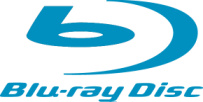 Although 20th Century Fox and MGM were slow to release many titles in high definition, both seem ready to make up for lost time now.
Although 20th Century Fox and MGM were slow to release many titles in high definition, both seem ready to make up for lost time now.
Between the two studios there will be nearly 30 hi-def releases by the end of this year including "Fantastic Four: Rise of the Silver Surfer" and "Live Free or Die Hard".
Fox has promised six movies to be released simultaneously as regular DVDs and in Blu-ray format, and MGM will do the same with four titles.
Additional titles will be from each studios library of past releases, including Fox films "Mr. & Mrs. Smith" and "The Fly."
Following the recent completion of BD+, an advanced form of copy protection, Fox and other studios were expected to ramp-up their Blu-ray title output.
Interestingly, the increase in Blu-ray output comes at the same time Paramount has announced they're putting all their support behind rival HD DVD.
Source: Video Business
Written by Rich Fiscus @ 20 Aug 2007 6:41
 As the so-called format war between Blu-ray and HD DVD gets more convoluted every day, Paramount has come along to throw a little more confusion into the mix.
As the so-called format war between Blu-ray and HD DVD gets more convoluted every day, Paramount has come along to throw a little more confusion into the mix.
Long before either format was anywhere near releasing an actual product, Paramount threw their support firmly behind HD DVD. In 2005 someone at the studio changed their mind on the decision, and until this week the studio released movies in both formats.
Now, in a surprise move, both Paramount and DreamWorks Animation SKG announced they're releases will be available strictly on HD DVD. The decision affects movies from Paramount Pictures, DreamWorks Pictures, Paramount Vantage, Nickelodeon Movies and MTV Films.
In a statement, Brad Grey, Chairman and CEO of Paramount Pictures said, "Part of our vision is to aggressively extend our movies beyond the theater, and deliver the quality and features that appeal to our audience. I believe HD DVD is not only the affordable high quality choice for consumers, but also the smart choice for Paramount."
It's an interesting move, given Blu-ray's commanding lead in Title sales, including Paramount's own titles.
Source: Ars Technica
Written by Rich Fiscus @ 18 Aug 2007 10:39
 Despite piracy concerns by movie studios, Hollywood appears to be experiencing record box office returns this summer.
Despite piracy concerns by movie studios, Hollywood appears to be experiencing record box office returns this summer.
For the first time ever, four films have made more than $300 million in the U.S. in the same summer. "Spider-Man 3", "Shrek the Third", Pirates of the Caribbean: At World's End", and "Transformers" have all broken the $300 million barrier. 9 other titles have exceeded $100 million.
ummer 2007 is turning out to be the best on the books, running 10% ahead of 2006 and 6% ahead of 2004, the previous record-holder, according to Nielsen EDI. The total number of summer admissions (May 4-Aug. 12) is 526.5 million, up 6% over the same Frame last summer.
So far the year-to-date numbers are just as promising, with income running 10% ahead of the best year on record - 2004.
I guess those popcorn farmers aren't doing as badly as NBC would like us to believe.
Source: Variety
Written by Rich Fiscus @ 18 Aug 2007 10:36
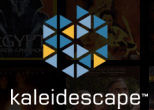 The DVD Copy Control Association may have reason to reconsider a proposed amendment to the CSS license which would force media server manufacturer Kaleidescape to stop selling their premier product.
The DVD Copy Control Association may have reason to reconsider a proposed amendment to the CSS license which would force media server manufacturer Kaleidescape to stop selling their premier product.
Kaleidescape's attorneys sent a letter to the association threatening to sue on anti-trust grounds if the amendment gets approved.
In a letter to Kaleidescape’s attorneys dated Aug. 6, DVD-CCA attorney Perry Johnson called the threat “unfounded” and accused Kaleidescape of attempting to “derail DVD-CCA’s fair and open amendment process.” However, the response didn't go so far as to say that they'll push the amendment forward.
The amendment, originally sponsored by Warner Bros., The Walt Disney Co. and two companies each from the consumer electronics and IT industries, would moot a judgment in favor of Kaleidescape by a California state court in a breach-of-contract claim brought against Kaleidescape by DVD-CCA.
The earlier litigation claimed Kaleidescape violated the CSS license by allowing its home media servers to copy DVDs to a hard drive for streaming across a network.
The judge in that case ruled that the CSS license did not legally prohibit Kaleidescape’s design. The ruling is now under appeal, giving the DVD-CCA even more reason to wait before taking action to amend the license, potentially exposing themselves to legal action.
Read more...
Written by Rich Fiscus @ 17 Aug 2007 10:11
 In an unusual move for an internet based company, online video rental firm Netflix is no longer taking customer service requests via email. Instead, all support issues will be handled by phone in the future.
In an unusual move for an internet based company, online video rental firm Netflix is no longer taking customer service requests via email. Instead, all support issues will be handled by phone in the future.
“We want to make the best movie experience better,” spokesman Steve Swasey said. “We find that people are more appreciative of talking to a live person 24 hours a day.”
The shift comes as the company battles Blockbuster for online subscribers and loyalty. In July, Netflix reported its first quarterly loss in subscribers.
Swasey said there’s not a material difference in cost of moving from e-mail to phone support.
“The very best e-mail program is still not as good as a live person on the phone,” he said.
Netflix also continues to test different price points on plans, apparently sending an e-mail to select subscribers of the three-movies-out plan today dropping the price by $1 to $15.99. The retailer just cut the price of that plan by $1 in July.
Source: Video Business
Written by Rich Fiscus @ 17 Aug 2007 10:03
 Sony Electronics launched its largest integrated marketing campaign in the U.S., centering on its high definition DNA known as "HDNA."
Sony Electronics launched its largest integrated marketing campaign in the U.S., centering on its high definition DNA known as "HDNA."
The campaign is intended to show how a variety of high definition technology from Sony can be used together to create a high quality home entertainment experience.
"HDNA is the core, the essence of all Sony HD products," said Sony Electronics' Chief Marketing Officer Mike Fasulo. "HDNA ensures an HD experience that you cannot have with any other brand."
"If a consumer is considering the purchase of an HD product, we believe that given our lineage and expertise in the category, Sony should be the only consideration. With this comprehensive campaign we will also demystify all of the fears associated with purchasing a high-definition product."
The campaign will begin in September.
Source: MarketWatch
Written by Rich Fiscus @ 17 Aug 2007 7:34
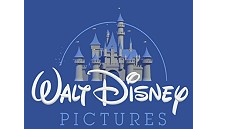 Walt Disney Studios would like to add more excitement to Blu-ray releases by including Web-enabled and picture-in-picture features on their new BD discs.
Walt Disney Studios would like to add more excitement to Blu-ray releases by including Web-enabled and picture-in-picture features on their new BD discs.
National Treasure will be configured as a BD-Live disc, the format’s term for software that features interactivity accessed through the Web.
Picture-in-picture, with which a separate video streams plays concurrently with the feature film, will be included on Finding Nemo and The Chronicles of Narnia: The Lion, the Witch and the Wardrobe.
Although no current set-top Blu-ray players can handle picture-in-picture interactivity, and few besides the PS3 can access the internet to take advantage of BD-Live content, Disney sees these features as important for the format's success.
All Blu-ray players introduced after Oct. 31 are required to handle picture-in-picture. Manufacturers also are expected to start rolling out BD-Live-capable hardware at that time.
Source: Video Business
Written by Rich Fiscus @ 17 Aug 2007 6:43
 AOL has relaunched Truveo.com, intended to be a service for viewers to find both user-generated and professionally produced video clips. The site has been rebuilt based on search technology acquired by AOL in 2006.
AOL has relaunched Truveo.com, intended to be a service for viewers to find both user-generated and professionally produced video clips. The site has been rebuilt based on search technology acquired by AOL in 2006.
"Over the past year, there has been an explosion in the amount of professionally produced video that's available on the Web," Timothy Tuttle, CEO and co-founder of Truveo and senior VP of AOL Video, said in a prepared statement. "While today's popular video sharing sites offer a wide variety of user-generated video, they rarely give users the opportunity to find professional, mainstream video. The new Truveo.com solves this problem, so whether it's a dog riding a skateboard or the latest episode of The Daily Show, Truveo.com is the one-stop site for finding videos from across the Web."
Truveo's search engine is used on AOL Video, AOL Search, Microsoft, Infospace and hundreds of other sites.
Source: Information Week
Written by Rich Fiscus @ 16 Aug 2007 6:06
 A stuch by industry group DEG: The Digital Entertainment Group indicates consumers aren't sold on watching video online.
A stuch by industry group DEG: The Digital Entertainment Group indicates consumers aren't sold on watching video online.
The study, titled “Online Content: New Pathways of Discovery and Use”, involved a survey of over 1,000 people, and found that most still prefer watching DVDs or TV to streaming.
Only 10% of respondents said they prefer streaming or downloading a movie, while over 70% prefer either DVD or TV.
Perhaps of more interest was the fact that nearly one quarter of those surveyed were interested in paying to stream or download movies if they could get them at the same time they're released in theaters.
Source: Video Business
Written by Rich Fiscus @ 15 Aug 2007 9:16
 Today I'm posting the first in a series of guides for creating DVDs. The project involves creating a DVD using public domain video files and a combination of free, trial, and on occasion low cost commercial tools. Instructions will be given for both PAL and NTSC DVDs.
Today I'm posting the first in a series of guides for creating DVDs. The project involves creating a DVD using public domain video files and a combination of free, trial, and on occasion low cost commercial tools. Instructions will be given for both PAL and NTSC DVDs.
Some of you may have seen this previously when I inadvertantly published it in place of my CCE Basic guide. If you were looking for my CCE guide I apologize. It's also up now so you can finally read it.
You can find the guide, titled Basic DVD Authoring Project Part 1, at
Deciphering CCE Basic is finally at the correct link as promised previously.
Read more...
Written by Rich Fiscus @ 15 Aug 2007 4:09
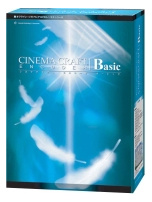 We have a new guide called "Deciphering CCE Basic". Instead of being oriented toward a single task, like most of our guides are, it's intended to give you an overview of all the options in the program.
We have a new guide called "Deciphering CCE Basic". Instead of being oriented toward a single task, like most of our guides are, it's intended to give you an overview of all the options in the program.
Read it at:
https://www.afterdawn.com/guides/archive/deciphering_cce_basic.cfm
Visit our guides section for more guides on digital video and other topics.
Written by Rich Fiscus @ 14 Aug 2007 10:13
 Sony is very happy with how Blu-ray technology is doing in developing markets in parts of Asia, Eastern Europe, and South Africa. Sales in those areas account for 10% of the company's home entertainment division's business.
Sony is very happy with how Blu-ray technology is doing in developing markets in parts of Asia, Eastern Europe, and South Africa. Sales in those areas account for 10% of the company's home entertainment division's business.
With more than a 20% increase in Blu-ray title sales across these regions, Sony sees big potential there. Individually, South Africa represents the largest share of these markets’ Blu-ray sales, with more than 15,000 units shipped to the country to date.
“It is extremely positive to see an increase in volume of Blu-ray software sales in these markets where piracy has previously ravaged the DVD business,” said T. Paul Miller, senior VP of international at Sony Pictures Home Entertainment.
Matt Brown, executive VP of international at SPHE, added, “This news underscores not only the demand for premium content in these markets, but also the need for a home entertainment format with an impenetrable content protection system like Blu-ray’s.”
It's easy for those of us in the US and Europe to forget the role other parts of the world play in the global economy. If these nations are going to play a major part in determining the winner of the format war though, it will likely mean that hardware prices have dropped significantly from where they are now.
Read more...
Written by Rich Fiscus @ 14 Aug 2007 9:48
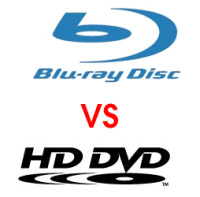 HD DVD and Blu-ray producers will be giving consumers more reason to be upset this Christmas, as "Spider-Man 3" comes out exclusively on Blu-ray and "The Bourne Ultimatim" is available only on HD DVD.
HD DVD and Blu-ray producers will be giving consumers more reason to be upset this Christmas, as "Spider-Man 3" comes out exclusively on Blu-ray and "The Bourne Ultimatim" is available only on HD DVD.
While releasing a movie in only one of the two major hi-def formats is considered a good move for promoting your studio's choice, it brings up the question of what impression it leaves on consumers.
So far consumers, by an large, haven't been forced to make a decision because players were priced outside their means. Many don't even have the HDTV displays required to take advantage of either format's improved picture quality. However, with significantly cheaper hardware expected in time for Christmas, consumers will be under pressure to decide between them this Christmas, and it's possible the lack of key titles from both formats will help them decide to keep their money in their pockets.
Sadly, although there are units available that can playback both formats, it's currently more expensive than buying both an HD DVD and Blu-ray player.
HD DVD, developed by Toshiba and backed by powerful companies like Microsoft, has the lead in standalone players sold because they are cheaper and hit the market first. In the United States, standalone HD DVD players have 61 percent market share, while Blu-ray players have 36 percent share and the few dual-format players have a 3 percent share, according to market research company The NPD Group.
Read more...
Written by Rich Fiscus @ 14 Aug 2007 8:44
 Comedians Jon Stewart and Stephen Colbert, whose programs were once among the most viewed on YouTube, were requested by the video site to give testimony in legal proceedings as it fights a $1 billion lawsuit by Viacom Inc, according to court filings.
Comedians Jon Stewart and Stephen Colbert, whose programs were once among the most viewed on YouTube, were requested by the video site to give testimony in legal proceedings as it fights a $1 billion lawsuit by Viacom Inc, according to court filings.
The two hosts of the Viacom hits "The Daily Show" and "The Colbert Report" were listed as numbers three and four out of 32 people called by YouTube to give a deposition in Viacom's case against it and parent Google Inc, according to a document filed in the U.S. District Court for the Southern District of New York last week.
Viacom sued Google and YouTube in March after failing to reach a distribution agreement. Viacom said YouTube carried the entertainment company's programs on its site without permission.
At the time, Viacom said its Comedy Central shows were among the most viewed video clips on YouTube's service overall, which allows users to upload material. Ahead of the suit, Colbert had even urged fans to make him a star on sites like YouTube.
This seems to open up the possibility for a defense that responsibility for the large number of clips from those shows lies not with YouTube, but rather with representatives of the shows themselves, who not only condoned, but even encouraged viewers to post them to the viral video site.
Read more...
Written by Rich Fiscus @ 14 Aug 2007 7:44
 Polar Frog Digital, a company that distributes and operates movie download kiosks, has joined the Digital Entertainment Group (DEG) as an associate member.
Polar Frog Digital, a company that distributes and operates movie download kiosks, has joined the Digital Entertainment Group (DEG) as an associate member.
Polar Frog operates MediaIgloo DVD burning kiosks in the Burbank, Calif., and Raleigh-Durham, N.C., airports. The company hopes to launch 100 kiosks in additional locations by the end of the year. The kiosks offer 5,000 titles from independent suppliers.
DEG is a trade group formed in 1997 to promote DVD-Video technology and products. Other members include entertainment companies, as well as hardware and software vendors.
Polar Frog is hoping to take advantage of this year's decision by the DVD Forum, which allows CSS to be used on recordable DVDs. Previously, only factory stamped DVDs could use the encryption technology, which was a major stumbling Block for any type of on-demand DVD technology.
Read more...
Written by Rich Fiscus @ 13 Aug 2007 6:45
 The Bush administration wants China to crack down on piracy.
The Bush administration wants China to crack down on piracy.
"Over the past several years, China has taken tangible steps to improve (intellectual property rights) protection and enforcement. However, we still see important gaps that need to be addressed," Sean Spicer, spokesman for U.S. Trade Representative Susan Schwab, said in a statement.
U.S. officials want to see more aggressive prosecution in China of those who pirate copyrighted or trademarked materials, and more stringent rules for what happens to pirated material once it's seized.
"We will pursue this legal dispute in the WTO and will continue to work with China bilaterally on other important (intellectual property rights) issues," Spicer said.
Unlike people who download media files from P2P networks or trade CDs and DVDs with their friends, there's really no debate about whether Asian organized crime costs entertainment companies billions of dollars.
Even legitimate companies have been known to ignore intellectual property, as was the case for early Chinese DVD players that were manufactured and sold without any patent royalty payments.
Read more...
Written by Rich Fiscus @ 13 Aug 2007 11:00
 European children understand the risks associated with illegal downloading, but justify what they're doing by saying that everyone is doing it according to a European Commision survey.
European children understand the risks associated with illegal downloading, but justify what they're doing by saying that everyone is doing it according to a European Commision survey.
Almost all of the children surveyed in the 27 European Union member countries as well as in Norway and Iceland said they expect to continue downloading. They also said the risk of downloading a virus was far more dissuasive than the risk of legal proceedings.
The survey also showed that children are far more aware of risks like viruses and identity theft than their parents believe, and are generally aware of how to avoid them.
Regardless of whether you're in favor of such downloading or against, the reality is that it's happening. And assuming the results of this study are anywhere near accurate, it's going to continue to happen.
The real question is what kind of business model will continue to encourage creative works to be created and what sort of intellectual property laws are enforceable.
Complaining that people are "stealing" your works and coming up with more and more DRM simply isn't a realistic business model, but we have yet to find out for sure what may be viable. Until such a thing is established, expect to see more DRM that raises costs and lowers profits without putting a significant dent in either personal or commercial piracy.
Read more...
Written by Rich Fiscus @ 13 Aug 2007 10:09
 Since the death of the commercial part of Google Video will render thousands and thousands of purchases useless, the Library of Congress will have no choice but to consider the matter when they return to their triennial review of the DMCA.
Since the death of the commercial part of Google Video will render thousands and thousands of purchases useless, the Library of Congress will have no choice but to consider the matter when they return to their triennial review of the DMCA.
To date, the Library of Congress has granted exceptions to the anti-circumvention clause of the DMCA in instances where DRM has rendered something completely unusable, such as eBook DRM which can render eBooks useless for handicapped people. The right to bypass DRM on products that no longer work properly was considered but rejected last time around.
Now, thanks to Google, we have a case study, a real-world example we can point to and say: "Hey, this isn't right." It features one of the world's most innovative and financially powerful technology companies bagging out on users. It features thousands of consumers buying DRMed goods in earnest, and it ends with a bang; Google decides to exit the market, leaving consumers with a load of useless goods.
Needless to say, this could happen with any player. Google could float its store if it wanted to, but it is exiting the business. What happens when Amazon does the same? Or Apple, or the next guy?
Read more...
Written by Rich Fiscus @ 13 Aug 2007 7:22
 Analysts believe that ISPs have started to revolt about delivering net video because of the fickle European broadband market and because publishers are effectively transferring their distribution costs on to the ISP.
Analysts believe that ISPs have started to revolt about delivering net video because of the fickle European broadband market and because publishers are effectively transferring their distribution costs on to the ISP.
Ian Fogg, an analyst at JupiterResearch, wrote on his blog: "If ISPs had healthy margins for broadband, this wouldn't matter anything like as much. But European consumers are highly price sensitive on broadband access, so ISP margins are poor."
In addition, he said, most large ISPs have launched their own TV services.
"These internet delivered TV offers both push up ISPs' bandwidth and network costs, and they potentially undermine the ISPs' own TV services. So ISPs vocally use the issue of higher costs, while ISPs are also concerned about revenue protection for their TV services."
While services like BBC's iPlayer are popular with consumers, ISPs aren't happy about providing the bandwidth required for their customers to take advantage of them.
Arguably, the real question is whether ISPs should be selling services based on peak throughput being offered, or a more realistic number of sustained data transfer. As long as the former number is used instead of the latter you can expect consumers in many places to complain that they're not getting the service they're paying for, and ISPs complaining that they can't provide the bandwidth required for streaming video.
Read more...
Written by Rich Fiscus @ 12 Aug 2007 10:38
 Universal Music Group plans to sell DRM free music appear to include marketing a new online music store called gBox.
Universal Music Group plans to sell DRM free music appear to include marketing a new online music store called gBox.
Under the program, gBox will get referrals through ads Universal will buy through search leader Google Inc., gBox Chief Executive Tammy Artim said Friday.
Google will get standard advertising fees rather than a cut of sales under the arrangement. The ads, which would appear when a Google user searches for specific terms such as the name of an artist, will direct the user to gBox.
The arrangement with Universal and gBox is separate from Google's music search service, which directs users to online music stores when they search for specific albums or artists. The company says it does not get paid for such referrals, and it does not restrict links to a single retailer.
Google, which has said it has no plans to create a music store of its own, described the new arrangement as strictly an advertising relationship.
Universal Music will make DRM-free songs available Aug. 21 to Jan. 31. Amazon.com., Wal-Mart, Best Buy, and RealNetworks's Rhapsody are among the other retailers selling such tracks, but only gBox will get Universal's Google referrals.
Read more...
Written by Rich Fiscus @ 12 Aug 2007 9:59
 A legal storm is brewing between the Electronic Frontier Foundation and Universal Music Group over the right to sell CDs distributed for promotional purposes by music labels.
A legal storm is brewing between the Electronic Frontier Foundation and Universal Music Group over the right to sell CDs distributed for promotional purposes by music labels.
The dispute started when Universal sued Troy Augusto for selling CDs labeled "For Promotional Use Only". Augusto, with the backing of the EFF, filed a counter suit claiming that he has the right to sell them under the First Sale Doctrine.
The First Sale Doctrine is one of the most basic tenets of copyright law. It essentially states that the buyer of copyrighted material has the right to sell it later. The doctrine has been upheld repeatedly by various courts.
Universal's lawyers argue that the principal doesn't apply here because they never offered the CDs for sale. Instead they're given away, primarily to radio stations, in an attempt to get public exposure through third parties.
Their claim is that what they're doing is distributing media, and not a selling a standard license like the one assumed for retail CDs. A statement from UMG indicates that they consider the CDs to be their property.
Their statement goes on to say "this is not the first time that Mr. Augusto has been sued for this type of conduct. He was previously sued by Capitol Records and Virgin Records for the same thing and consented to a permanent injunction."
Read more...
Written by Rich Fiscus @ 11 Aug 2007 8:32
 Panasonic is going to be selling 37" LCD televisions starting in September. This reverses a policy of only selling plasma models at that size and higher.
Panasonic is going to be selling 37" LCD televisions starting in September. This reverses a policy of only selling plasma models at that size and higher.
Plasma's higher profit margins have fueled interest in the success of the technology by Japanese companies who have a hard time competing with Korean competitors for LCD sale.
While this policy has been in place, Panasonic has missed out on the growth of larger LCD display sales.
The 37-inch full high-definition LCD TV will go on sale in Japan on September 1 for an estimated price of 300,000 yen ($2,508). Osaka-based Matsushita Electric Industrial Co. aims to offer the model in overseas markets by the end of the year.
After surrendering to Korean manufacturers in the war for CRT televisions, Japanese manufacturers rely on flat panel displays for television revenue. As the largest electronics manufacturer in Japan, Matsushita's decisions are closely watched by the entire industry.
Source: Reuters
Written by Rich Fiscus @ 11 Aug 2007 8:09
 Say goodby to buying and renting from Google Video. On Wednesday the DTO/DTR (download-to-own/download-to-rent) service operated by the search engine company will stop renting and selling videos.
Say goodby to buying and renting from Google Video. On Wednesday the DTO/DTR (download-to-own/download-to-rent) service operated by the search engine company will stop renting and selling videos.
They announced this to customers with a letter like the following, received by an actual customer:
As a valued Google user, we're contacting you with some
important information about the videos you've purchased or
rented from Google Video. In an effort to improve all Google
services, we will no longer offer the ability to buy or rent
videos for download from Google Video, ending the DTO/DTR
(download-to-own/rent) program. This change will be effective
August 15, 2007.
To fully account for the video purchases you made before July 18,
2007, we are providing you with a Google Checkout bonus for $2.00.
Your bonus expires in 60 days, and you can use it at the stores
listed here: http://www.google.com/checkout/signupwelcome.html.
The minimum purchase amount must be equal to or greater than your
bonus amount, before shipping and tax.
After August 15, 2007, you will no longer be able to view your
purchased or rented videos.
If you have further questions or requests, please do not hesitate
to contact us. Thank you for your continued support.
Read more...
Written by Rich Fiscus @ 11 Aug 2007 7:29
 NBC Universal has taken the offensive in battling viral video sites like YouTube.
NBC Universal has taken the offensive in battling viral video sites like YouTube.
Their new website, Didja, will feature a mix of TV commercials and content from their USA and Sci-Fi cable networks.
Bonnie Hammer, president of both USA and Sci-Fi, said the goal is to "become the go-to destination for on-demand advertising content." "Didja.com is the logical next step in the changing dynamic between consumers and advertisers," Hammer said. "There's no doubt that commercials are major drivers of pop culture -- all you have to do is check out traffic on any video-sharing site. We want to own that watercooler conversation."
It's not exactly surprising that a major corporation would come up with the idea of selling advertising as programming. What's more interesting is that companies like NBC Universal put so much focus on getting people to talk about them, and very little discussing what people are interested in.
Despite a huge amount of video that no one cares about, sites like YouTube ultimately succeed by having enough content people want to see. That's what makes them send links to their friends. The advantage those sites have is a variety of content providers uploading content.
Read more...
Written by Rich Fiscus @ 11 Aug 2007 6:58
 Universal Music Group's plans for DRM free downloads apparently don't include iTunes. The downloads will be offered through Rhapsody as well as digital download stores run by Wal-Mart, Best Buy, and Amazon.com, as well as directly from artist websites.
Universal Music Group's plans for DRM free downloads apparently don't include iTunes. The downloads will be offered through Rhapsody as well as digital download stores run by Wal-Mart, Best Buy, and Amazon.com, as well as directly from artist websites.
UMG's test also includes a partnership with Google, which will run an AdWords campaign pointing users searching for DRM-free music to the download site gBox, which rewards music buyers with points toward earning gifts.
Although Universal says the decision not to include the industry dominating service from Apple is intended to use it as a control group, it's more noteable because of their very public complaints about iTunes' control over pricing.
Industry analyst, and vice president of Gartner, Mike McGuire, speculated that UMG may feel it can help level the playing Field in the digital music space with this move.
"iTunes sells 5 million songs a day," McGuire noted. "Nothing else comes close yet. Labels would prefer a more competitive marketplace."
Read more...
Written by Rich Fiscus @ 11 Aug 2007 5:47
 Veoh, an online video-sharing site, has decided to pre-emptively sue Universal Music Group. The online video site appears to be trying to send a clear message that they won't be intimidated into a royalty deal by the music giant.
Veoh, an online video-sharing site, has decided to pre-emptively sue Universal Music Group. The online video site appears to be trying to send a clear message that they won't be intimidated into a royalty deal by the music giant.
Veoh Networks, based in San Diego, filed the federal lawsuit yesterday, asking a judge to declare that the company has no liability to Universal even if individuals upload videos to the Veoh site that may contain music, used without permission, from Universal artists.
The company was appearently sent a letter by Universal stating that they might besued because of Veoh users “massively infringing” its copyrights. According to the suit, Universal hasn't provided any details about specific infringement so they could investigate and take action as appropriate.
"It is unfortunate that U.M.G. prefers to take actions that are designed to stifle innovation, shut down new markets and maintain the status quo instead of working to change and evolve models for today and the future,” Veoh’s chief executive, Steve Mitgang, said in a statement.
There are suspicions that Universal is trying to repeat its success in getting a licensing agreement with YouTube. In that case, Universal threatened to sue, but later backed down when the two sides reached an agreement out of court. .”
Read more...
Written by Rich Fiscus @ 10 Aug 2007 7:50
 Onkyo is releasing it's first HD DVD player at $899, something of a high price for that format.
Onkyo is releasing it's first HD DVD player at $899, something of a high price for that format.
Scheduled to appear in thh fall, the DV-HD805 will be one of the first to support high quality audio through HDMI 1.3a. t supports the advanced sound formats Dolby TrueHD, DTS-HD Master Audio, Dolby Digital Plus and DTS-HD High Resolution Audio.
It's also capable of 1080p output over HDMI.
With prices from current manufacturers dropping almost weekly, this seems like a strange move, but further examination reveals a player that's not being marketed toward the average consumer. It may do well with high end AV enthusiasts who were bought into first generation HD DVD technology and continue to want the latest and greatest.
The availability of different tiers of players may very well indicate that HD DVD is firmly entrenched enough to support a broader consumer base.
Source: Video Business
Written by Rich Fiscus @ 10 Aug 2007 6:28
 Universal Music Group, the world's largest music label, has said it will temporarily allow the sale of thousands of its albums and tracks DRM-free.
Universal Music Group, the world's largest music label, has said it will temporarily allow the sale of thousands of its albums and tracks DRM-free.
Universal plans to make titles from artists like Amy Winehouse, the Black Eyed Peas, and 50 Cent available without DRM, starting later this month and running until January 2008.
They say their intention is to find out whether piracy via P2P networks increases as a result of removing the DRM. Files will be released with a watermark that identifies them, but not the purchaser of the song.
Earlier in the year, much smaller rival EMI began making its entire music catalog available in a DRM free format.
Source: The Register
Written by Rich Fiscus @ 09 Aug 2007 5:38
 German courts have started a trend that has the music industry up in arms. Calling copyright violation by file sharing a "petty offense", a judge in Offenberg instructed the prosecuter's office not to turn over the data saying the labels hadn't explained how ""criminally relevant damage" could have arisen from the alleged file sharing.
German courts have started a trend that has the music industry up in arms. Calling copyright violation by file sharing a "petty offense", a judge in Offenberg instructed the prosecuter's office not to turn over the data saying the labels hadn't explained how ""criminally relevant damage" could have arisen from the alleged file sharing.
In other words how could the damage have been great enough to consider it a criminal offense?
One thing big entertainment companies don't seem to be willing to admit that there is more than one kind of piracy. While it's clear that all piracy is illegal, no clear connection between individuals sharing files on a P2P network and a significant drop in sales has been established.
In many countries there's a certain level of piracy that's considered a civil, not criminal offense. By definition, civil offenses aren't inherently harmful to society, and therefore often not grounds to release the kind of information in file sharing cases.
There's no question, for example, that Asian piracy rings distributing pirated music and movies in China, the U.S., and many other countries puts a dent in copyright holders' profits, is done for profit, and is a criminal offense. The link between someone downloading and a lost sale is more tenuous, and claims that such a connection exists should be met with a demand for proof - exactly what the German courts seem to be doing.
Read more...
Written by Rich Fiscus @ 09 Aug 2007 5:11
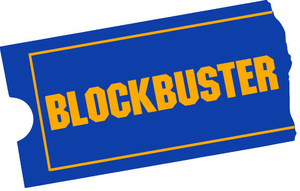 Blockbuster, the biggest brick and mortar video rental chain in the U.S. acquired movie download provider Movielink. They're also planning to have rights to provide the files of the service's previous owners, including Warner Brothers and MGM.
Blockbuster, the biggest brick and mortar video rental chain in the U.S. acquired movie download provider Movielink. They're also planning to have rights to provide the files of the service's previous owners, including Warner Brothers and MGM.
“It immediately puts us in the digital download business,” Blockbuster’s chief executive, James W. Keyes, said. “Clearly, our customers have responded favorably to having other convenient ways to access movies and entertainment.”
Unlike Blockbuster, Netflix has added Streaming video to their subscription plans. Netflix customers can stream a predetermined amount of video that increases with higher priced subscription plans.
Movielink doesn't currently offere streaming services. However, standard downloads are a better deal for customers with slower internet connections, as it gives everyone access to video with the same quality.
In order to stream movies from Netflix at full DVD Resolution requires an internet connection capable of sustaining 3Mbps downloads. Even broadband plans that advertise speeds that meet or exceed this requirement don't guarantee speeds in this range and frequently don't support maintaining them for extended periods.
Read more...
Written by Rich Fiscus @ 08 Aug 2007 4:37
 Microsoft has described its Mediaroom IPTV offering as a way for the software giant to expand its reach into the living room, but now the company also says IPTV is a chance for it to gain a new market in telecommunications operators.
Microsoft has described its Mediaroom IPTV offering as a way for the software giant to expand its reach into the living room, but now the company also says IPTV is a chance for it to gain a new market in telecommunications operators.
"Microsoft hasn't traditionally operated in the backbone infrastructure of the carrier," said Christine Heckart, general manager of Microsoft's TV group, speaking on a Webcast from the Pacific Crest Technology Forum in Vail, Colorado, on Tuesday. "Mediaroom is really the first time in that business."
Despite Microsoft's hopes for Mediaroom, the new name a few months ago didn't really begin to make a difference.
Even though they have 10 customers using Mediaroom commercially around the world, a relatively large number considering the current size of the worldwide market, technical problems have reportedly set more than one provider back.
Those experiences show that Microsoft may have to do some more work before convincing operators to deploy more Microsoft products. Earlier this year, AT&T, one of Microsoft's IPTV customers, said that it was having technical problems related to software programming that was causing launch delays. Swisscom and Deutsche Telekom also delayed commercial services after technical difficulties with Microsoft IPTV products.
Read more...
Written by Rich Fiscus @ 08 Aug 2007 4:24
 On Monday, two men were sentenced in what the government calls the largest DVD piracy scheme to be prosecuted in the U.S.
On Monday, two men were sentenced in what the government calls the largest DVD piracy scheme to be prosecuted in the U.S.
The two defendants, Ye Teng Wen, also known as Michael Wen, and Hao He, who is sometimes called Kevin He, were sentenced to 37 months each in federal prison, followed by three years of supervised release, and fines. A third defendant, Yaobin Zhai, also known as Ben Zhai, received the same jail and supervised release sentence, but a much larger fine of nearly $7 million.
All three men were arrested as part of Operation Remaster, an federal undercover operation that executed 13 search warrants in California and Texas. According to a Department of Justice press release, nearly 500,000 pirated CDs and DVDs were seized, as well as more than 6,000 stampers which could be used to manufacture pirated discs.
While entertainment companies are quick to point fingers at file sharing and personal disc copying for decreasing revenue, the numbers used to show those losses often come from commercial operations like this one. It's a reasonable assumption that at least most of the money spent purchasing pirated CDs and DVDs would otherwise be spent purchasing similar legitimate goods.
Read more...
Written by Rich Fiscus @ 07 Aug 2007 10:07
 German media authorities are expected to award a national mobile television license for the DVB-H standard by month's end.
German media authorities are expected to award a national mobile television license for the DVB-H standard by month's end.
A spokeswoman for the directors' conference of the state media authorities said interested parties, including a consortium of T-Mobile and the German units of O2 and Vodafone, have until Friday to get proposals ready. However, a decision hasn't been made yet as to whether they'll be able to compete for the license as a group.
The big rush to get a licensee in place is next year's Euro 2008 soccer championship, which will be held in Austria and Switzerland next June.
As we reported last month, DVB-H has been selected as the official standard for mobile television by the European Union. Implementation of a single standard is seen as critical for allowing European companies to be industry leaders.
Source: Reuters
Written by Rich Fiscus @ 07 Aug 2007 7:56
 Microsoft announced that Xbox 360 prices will drop to $349 for the 20GB model, a $50 price cut. A basic console without a hard drive or wireless controllers will retail for $279, $20 less than its current price, while the Xbox 360 Elite, a black version with a 120-gigabyte hard drive and high-definition video support, will drop $50 to $449.
Microsoft announced that Xbox 360 prices will drop to $349 for the 20GB model, a $50 price cut. A basic console without a hard drive or wireless controllers will retail for $279, $20 less than its current price, while the Xbox 360 Elite, a black version with a 120-gigabyte hard drive and high-definition video support, will drop $50 to $449.
The new prices will be effective tomorrow, almost exactly a month after rival Sony slashed the price of the PS3 $100 to sell the remaining stock of first generation models in preparation for the launch of a newer version.
Microsoft says the cuts aren't related to Sony's move. The official announcement specifically mentions the release of Madden NFL 08, which it notes was the top selling console game last year.
"There is nothing too shocking about this," said Michael Gartenberg, an analyst at JupiterResearch. He said it's normal for companies to cut console prices between one and two years after launch.
The analyst added that the $50 price cut will bring in a whole new group of customers who ruled it out at the higher price, and that Microsoft should enjoy increased sales immediately - even though the official holiday shopping season is still months away.
Read more...
Written by Rich Fiscus @ 02 Aug 2007 9:06
 A coalition of Japanese television, music and film companies is following the increasingly popular practice of attacking YouTube Thursday. They say the viral video site isn't doing enough to get rid of videos that infringe on copyrights.
A coalition of Japanese television, music and film companies is following the increasingly popular practice of attacking YouTube Thursday. They say the viral video site isn't doing enough to get rid of videos that infringe on copyrights.
''YouTube has to stop how it runs its site and get rid of the illegal clips. We want them to reset the service,'' composer Hideki Matsutake told a joint press conference in Tokyo Thursday. The coalition met with YouTube and Google executives earlier in the week, the second such meeting this year.
''There is no middle ground,'' Matsutake said. ''We demand that all copyrighted material be removed immediately.'' Talks with YouTube and Google will continue, said Matsutake, who was acting as a spokesman for the group.
The group says Google's promise to have digital fingerprinting technology implemented by year's end is too late.
Clips from Japanese TV and the music industry are popular on YouTube. A spoof of an English language lesson taken from a popular comedy show aired by Nippon Television Network has been viewed more than a million times.
''What's important to us is what YouTube can do immediately,'' said Mizuo Sugawara of the Japanese Society for Rights of Authors, Composers and Publishers. ''We have no guarantee whether the new technology will even work,'' he said.
Read more...
Written by Rich Fiscus @ 02 Aug 2007 8:32
 On Thursday Pioneer announced they will launch their first full high definition plasma TVs in October.
On Thursday Pioneer announced they will launch their first full high definition plasma TVs in October.
The move comes after the company's plasma operations reported a second quarter loss blamed on intense competition among flat panel televisions. Plasma televisions have been losing market share to LCD models.
Pioneer's new 50- and 60-inch full high-definition sets, featuring an ability to recreate deeper black than conventional models, are expected to sell for 720,000 yen ($6,060) and 990,000 yen ($8,340) in Japan.
Matsushita, the current leader in plasma sales, has 50-inch full high-definition plasma TVs selling for around 450,000 yen.
"We are determined to distance ourselves from price competition and move on to a new stage to offer an exciting experience for our customers," Pioneer Managing Director Shinji Yasuda told a news conference.
Despite prices for upcoming plasma displays being high in comparison to LCD televisions, which seem to be gaining market share every day, Pioneer still plans to ship over 700,000 plasma TVs displays in the next business year, which ends next March.
At least one reason for Japanese manufacturers to stay firmly behind plasma is the lower margins available with other technologies. Much like their rise to dominance in the 1970s and 1980s because of lower production costs, they're finding it increasingly difficult to compete with Korean, and now Chinese companies.
Read more...
Written by Rich Fiscus @ 01 Aug 2007 7:10
 In October Canon plans to start selling the HG10, the company's first high-definition hard drive camcorder and the world's smallest.
In October Canon plans to start selling the HG10, the company's first high-definition hard drive camcorder and the world's smallest.
The new camcorder will weigh in at 19.92 ounces with the battery inside.
The 40GB hard disk will be enough for 5.5 hours of AVCHD recording at its highest quality setting, resulting in an Anamorphic Resolution of 1440x1080 compressed at 15Mbps. This is 25% higher than the Bitrate allowed by Canon's DVD based HR10.
Unlike Compression schemes from Sony and Panasonic, Canon's implementation of AVCHD uses VBR compression, allowing complex scenes to have less compression applied than simple scenes.
Canon said a version of the Windows-only Corel (formerly Ulead) VideoStudio 11 will be included with this HG10 camcorder, which is good news for consumers since support for AVCHD in editing software isn't exactly a standard feature.
Read more...
Written by Rich Fiscus @ 01 Aug 2007 6:19
 Walt Disney's entertainment division revenue suffered from a weak selection of movies during the last quarter according to reports from the studio on Wednesday.
Walt Disney's entertainment division revenue suffered from a weak selection of movies during the last quarter according to reports from the studio on Wednesday.
The apparent problem was the lack of a single strong title comparable to last years "The Chronicles of Narnia: The Lion, the Witch, and the Wardrobe." Last year that title alone sold more than 18 million DVDs.
Revenue across the division was still up 4% to $1.8 billion.
The home video decline was partially offset by international profits from Pirates of the Carribean: At World's End, but in the U.S. its theatrical performance was offset by marketing costs for Pixar movie Ratatouille.
Disney has plans to cash in on the success of the Pirates of the Carribean franchise with the release of a box set, but no date has been announced.
The company also has a huge promotional program coming up for "High School Musical 2", premiering on the Disney Channel in August. There's currently no release date for the DVD.
Source: Video Business
Written by Rich Fiscus @ 01 Aug 2007 5:58
 A Seattle-based company called Open Interface North America (OINA) announced plans to release a new lossless audio Codec called SOUNDabout Lossless.
A Seattle-based company called Open Interface North America (OINA) announced plans to release a new lossless audio Codec called SOUNDabout Lossless.
Because of the need to send data in real time, combined with the relatively unreliable connection quality of Bluetooth, compressing audio data before sending from one device to another is a necessity. Possibly because the technology is generally used for things like mobile phones, finding a way to transmit audio losslessly hasn't apparently been a priority for most companies.
However, when music that was already encoded with some loss (like MP3 or AAC) it doesn't make much sense to re-compress it with more loss before sending it to a device like Bluetooth stereo headphones.
"The main drawback of putting MP3 or ACC Decode in [Bluetooth] headphones," Greg Burns, OINA's Chief Technology Officer, told PC Magazine, "is a business rather than a technical issue: the wireless headphone becomes burdened with the MP3 royalty. Standard royalties for devices are 75 cents, which is a significant piece of the overall BOM (bill-of-materials) cost and may be in the $20 range. If the headphones also support AAC, this can add another dollar…Since an MP3 player will already have an MP3 and/or AAC decoder built in, this means that the consumer buying the headphones is effectively paying twice for the MP3 and AAC decode capabilities."
Read more...
Written by Rich Fiscus @ 01 Aug 2007 4:53
 A tech industry trade group, including companies like Google and Microsoft asked federal regulators to force changes in copyright warnings.
A tech industry trade group, including companies like Google and Microsoft asked federal regulators to force changes in copyright warnings.
The Computer and Communications Industry Assiation said in a statement Wednesday that copyright statements used by sports leagues and content distributors (like movie studios) go too far, and warn against uses that are actually legal. The organization filed a complaint with the Federal Trade Commision arguing that companies using such language should be required to mount a marketing campaign to inform consumers of their actual rights.
Although many content owners are quick to complain about unauthorized copying, what they usually fail to mention is that unlawful doesn't automatically mean illegal.
CCIA spokesman Will Rodger said in the Wednesday statement that "the bottom line is that the copyright holder is not the final arbiter of how his work can be used. Copyrights are granted by the federal government and it's 'we the people' who decide where to draw that line between what's legal and what is not."
The FTC isn't expected to act on the complaint simply due to the complexity of copyright law. In most cases, the only way to measure the legality of a given use of copyrighted material is a judge's decision.
Read more...
Written by Rich Fiscus @ 01 Aug 2007 4:14
 Today Panasonic started a marketing campaign to give away thousands of dollars of home video products.
Today Panasonic started a marketing campaign to give away thousands of dollars of home video products.
Using the website www.livinginhd.com they'll be giving away Panasonc electronics packages valued at over $20,000 each.
Visitors submit stories explaining what they would use the features of various Panasonic products including BD players, plasma TVs, and camcorders. Winners will also be given a Nintendo Wii.
Videos of each family using their new electronics will be featured on the program's website.
Panasonic hopes to use the program to get parents involved in the technology their kids are interested in. In particular, they're hoping to improve interest in hi-def video products.
Content for the site is being overseen by Brett Ratner, director of X-Men: The Last Stand. Ratner is impressed with what people can do with high definition technology.
“A kid living in middle America has in the palm of his hand the power to make a film. This will inspire families to be creative,” said Ratner. “And for people around the U.S. to see their footage, I think that is a very exciting prospect.”
Source: Video Business
Written by Rich Fiscus @ 31 Jul 2007 8:50
 The "open beta" launch of the BBC's on demand service on Friday has left many license fee-payers frustrated, as downloads of the iPlayer are still strictly Limited.
The "open beta" launch of the BBC's on demand service on Friday has left many license fee-payers frustrated, as downloads of the iPlayer are still strictly Limited.
As we reported last week, the BBC's video download service is only available to a limited number of people right now. That number is expected to increase gradually through the full scale rollout of the service in the fall.
However, it seems the BBC didn't think the restricted number of viewers was as big a deal as they're viewers do. In fact you'd have to get about halfway through their press release before reading that "It will go live to the general public in open Beta on 27 July, allowing the number of users to increase over the summer in a controlled manner, before a full marketing launch in the autumn."
According to a BBC spokeswoman, part of the reason for the unusual "open beta" was that the iPlayer team isn't able to send bulk email.
In a twist to the interoperability controversy and accusations of Microsoft bias, it has emerged that iPlayer will run on Windows Vista PCs, and not only on XP as the BBC suggests. However, the BBC is Blocking Vista iPlayer downloads using the user agent string which allows web servers to identify browsers and the operating system they are running on top of.
Read more...

 HD DVD players priced under $200 are expected from Chinese company Venturer Electronics by the fourth quarter of this year.
HD DVD players priced under $200 are expected from Chinese company Venturer Electronics by the fourth quarter of this year.

 DVRs have earned the enmity of broadcasters and advertisers alike by enabling viewers to easily skip their least favorite bit of the TV watching experience, commercials. Another group may be moving the
DVRs have earned the enmity of broadcasters and advertisers alike by enabling viewers to easily skip their least favorite bit of the TV watching experience, commercials. Another group may be moving the  A University of Tennessee student is attempting to quash an
A University of Tennessee student is attempting to quash an  Engineers at the University of California, San Diego, have built the world's highest-resolution computer display, a 55-panel screen capable of zooming in on a live picture of a human brain to give a clear image of a nerve
Engineers at the University of California, San Diego, have built the world's highest-resolution computer display, a 55-panel screen capable of zooming in on a live picture of a human brain to give a clear image of a nerve  DirecTV's NFL Sunday Ticket service will be making the leap to computer screens across the country this fall.
DirecTV's NFL Sunday Ticket service will be making the leap to computer screens across the country this fall.
 News has been spreading through the gaming community that the PC version of the game Bioshock installs a rootkit on your computer. However, those reports aren't actually correct.
News has been spreading through the gaming community that the PC version of the game Bioshock installs a rootkit on your computer. However, those reports aren't actually correct.
 According to a study from consumer research company OTX and social networking site eCrush, teenagers don't really use the internet either to find or to download movies.
According to a study from consumer research company OTX and social networking site eCrush, teenagers don't really use the internet either to find or to download movies.
 The island country of Antigua believes they have the right, under international law, to violate United States intellectual property laws.
The island country of Antigua believes they have the right, under international law, to violate United States intellectual property laws.
 The Digital Media Association (DiMA) and SoundExchange announced an agreement yesterday to cap the $500 per-channel webcasting fees at $50,000—a victory for large webcasters that stream thousands of stations.
The Digital Media Association (DiMA) and SoundExchange announced an agreement yesterday to cap the $500 per-channel webcasting fees at $50,000—a victory for large webcasters that stream thousands of stations.
 Google says that content makers will have control over which videos have ads overlaid on them when they get posted to viral video site YouTube.
Google says that content makers will have control over which videos have ads overlaid on them when they get posted to viral video site YouTube.
 A push to sell more expensive brand name models is currently dominating shelves at a store near you.
A push to sell more expensive brand name models is currently dominating shelves at a store near you.
 The European Commission attempts to simplify European licensing for mobile satellite services could increase demand for broadcast television to handheld devices like mobile phones.
The European Commission attempts to simplify European licensing for mobile satellite services could increase demand for broadcast television to handheld devices like mobile phones.
 The Fox police drama was available online before it's broadcast premier in September.
The Fox police drama was available online before it's broadcast premier in September.
 Nintendo's Wii continues to lead the pack of current-generation video game consoles, according to NPD Group. However, the real eye-opener, from NPD's perspective, is the unexpected mid-summer sales boom involving just about everything related to the games.
Nintendo's Wii continues to lead the pack of current-generation video game consoles, according to NPD Group. However, the real eye-opener, from NPD's perspective, is the unexpected mid-summer sales boom involving just about everything related to the games.
 RHI Entertainment, a prolific creator of made for TV movies has plans to release 24 original films directly on VOD (Video on Demand).
RHI Entertainment, a prolific creator of made for TV movies has plans to release 24 original films directly on VOD (Video on Demand).
 After Paramount Home Entertainment announced last week that they'll be releasing new titles exclusively on HD DVD, instead of both HD DVD and Blu-ray, retailers were left to explain to their customers why "Blades of Glory", which had been scheduled for an August 28 Blu-ray release, won't be available in that format.
After Paramount Home Entertainment announced last week that they'll be releasing new titles exclusively on HD DVD, instead of both HD DVD and Blu-ray, retailers were left to explain to their customers why "Blades of Glory", which had been scheduled for an August 28 Blu-ray release, won't be available in that format.
 In January there was much speculation that low priced Chinese DVD players would be available well before the end of this year, including a deal supposedly in the works by retailer Wal-Mart which were eventually shot down.
In January there was much speculation that low priced Chinese DVD players would be available well before the end of this year, including a deal supposedly in the works by retailer Wal-Mart which were eventually shot down.
 A new Digital Video Fundamentals guide is available. The guide, which covers the basics of lossy video
A new Digital Video Fundamentals guide is available. The guide, which covers the basics of lossy video  A new study from the Institute for Policy Innovation adds a new twist to music industry estimates on the cost of piracy, claiming piracy related costs to the economy of $12.5 Billion.
A new study from the Institute for Policy Innovation adds a new twist to music industry estimates on the cost of piracy, claiming piracy related costs to the economy of $12.5 Billion.
 Sony seems to be moving forward with plans to make the PS3 a home entertainment center for your living room by turning it into a DVR.
Sony seems to be moving forward with plans to make the PS3 a home entertainment center for your living room by turning it into a DVR.
 Google has decided to offer real refunds to Google Video users who are losing movies they thought they owned until the Download To Own service shut down earlier this month.
Google has decided to offer real refunds to Google Video users who are losing movies they thought they owned until the Download To Own service shut down earlier this month.
 Despite Paramount and Dreamworks SKG deciding to back HD DVD exclusively, research firm Understanding & Solutions still believes
Despite Paramount and Dreamworks SKG deciding to back HD DVD exclusively, research firm Understanding & Solutions still believes  The third part of our new Basic
The third part of our new Basic  Comcast is vehemently denying claims that they're filtering BitTorrent traffic on their network.
Comcast is vehemently denying claims that they're filtering BitTorrent traffic on their network.
 Adobe has announce the addition of high definition video to the new version of its Flash Player, which is currently in beta testing.
Adobe has announce the addition of high definition video to the new version of its Flash Player, which is currently in beta testing.
 7digital, a London based music download service, is going to be the first company to deliver EMI's Rolling Stones catalog without DRM.
7digital, a London based music download service, is going to be the first company to deliver EMI's Rolling Stones catalog without DRM.
 Vizio, which got its start helping Gateway enter the LCD business, has something to be proud of for itself. It's quietly become the top LCD vendor in the North America.
Vizio, which got its start helping Gateway enter the LCD business, has something to be proud of for itself. It's quietly become the top LCD vendor in the North America.
 Viacom and RealNetworks are hoping to take a bite out of Apple's successful iTunes service with a joint venture announced Tuesday.
Viacom and RealNetworks are hoping to take a bite out of Apple's successful iTunes service with a joint venture announced Tuesday.
 Panasonic announced that they are able to extend the phosphor half life of consumer plasma displays to 100,000 hours, an improvement of around 2/3 over older technology.
Panasonic announced that they are able to extend the phosphor half life of consumer plasma displays to 100,000 hours, an improvement of around 2/3 over older technology.
 Although there's been no release announcement, Microsoft is making its upcoming Windows Home Server software available to OEM partners on August 27th. Outside the U.S. it's already being sold to vendors for between $150 and $200.
Although there's been no release announcement, Microsoft is making its upcoming Windows Home Server software available to OEM partners on August 27th. Outside the U.S. it's already being sold to vendors for between $150 and $200.
 The assertion that making a song available over a
The assertion that making a song available over a  Although 20th Century Fox and MGM were slow to release many titles in high definition, both seem ready to make up for lost time now.
Although 20th Century Fox and MGM were slow to release many titles in high definition, both seem ready to make up for lost time now.
 Despite piracy concerns by movie studios, Hollywood appears to be experiencing record box office returns this summer.
Despite piracy concerns by movie studios, Hollywood appears to be experiencing record box office returns this summer.
 The DVD Copy Control Association may have reason to reconsider a proposed amendment to the CSS license which would force media server manufacturer Kaleidescape to stop selling their premier product.
The DVD Copy Control Association may have reason to reconsider a proposed amendment to the CSS license which would force media server manufacturer Kaleidescape to stop selling their premier product.
 In an unusual move for an internet based company, online video rental firm Netflix is no longer taking customer service requests via email. Instead, all support issues will be handled by phone in the future.
In an unusual move for an internet based company, online video rental firm Netflix is no longer taking customer service requests via email. Instead, all support issues will be handled by phone in the future.
 Sony Electronics launched its largest integrated marketing campaign in the U.S., centering on its high definition DNA known as "HDNA."
Sony Electronics launched its largest integrated marketing campaign in the U.S., centering on its high definition DNA known as "HDNA."
 Walt Disney Studios would like to add more excitement to Blu-ray releases by including Web-enabled and picture-in-picture features on their new BD discs.
Walt Disney Studios would like to add more excitement to Blu-ray releases by including Web-enabled and picture-in-picture features on their new BD discs.
 AOL has relaunched Truveo.com, intended to be a service for viewers to find both user-generated and professionally produced video clips. The site has been rebuilt based on search technology acquired by AOL in 2006.
AOL has relaunched Truveo.com, intended to be a service for viewers to find both user-generated and professionally produced video clips. The site has been rebuilt based on search technology acquired by AOL in 2006.
 A stuch by industry group DEG: The Digital Entertainment Group indicates consumers aren't sold on watching video online.
A stuch by industry group DEG: The Digital Entertainment Group indicates consumers aren't sold on watching video online.
 We have a new guide called "Deciphering
We have a new guide called "Deciphering  HD DVD and Blu-ray producers will be giving consumers more reason to be upset this Christmas, as "Spider-Man 3" comes out exclusively on Blu-ray and "The Bourne Ultimatim" is available only on HD DVD.
HD DVD and Blu-ray producers will be giving consumers more reason to be upset this Christmas, as "Spider-Man 3" comes out exclusively on Blu-ray and "The Bourne Ultimatim" is available only on HD DVD.
 Comedians Jon Stewart and Stephen Colbert, whose programs were once among the most viewed on YouTube, were requested by the video site to give testimony in legal proceedings as it fights a $1 billion lawsuit by Viacom Inc, according to court filings.
Comedians Jon Stewart and Stephen Colbert, whose programs were once among the most viewed on YouTube, were requested by the video site to give testimony in legal proceedings as it fights a $1 billion lawsuit by Viacom Inc, according to court filings.
 Polar Frog Digital, a company that distributes and operates movie download kiosks, has joined the Digital Entertainment Group (DEG) as an associate member.
Polar Frog Digital, a company that distributes and operates movie download kiosks, has joined the Digital Entertainment Group (DEG) as an associate member.
 Universal Music Group plans to sell
Universal Music Group plans to sell  A legal storm is brewing between the Electronic Frontier Foundation and Universal Music Group over the right to sell CDs distributed for promotional purposes by music labels.
A legal storm is brewing between the Electronic Frontier Foundation and Universal Music Group over the right to sell CDs distributed for promotional purposes by music labels.
 NBC Universal has taken the offensive in battling viral video sites like YouTube.
NBC Universal has taken the offensive in battling viral video sites like YouTube.
 Universal Music Group's plans for
Universal Music Group's plans for  Veoh, an online video-sharing site, has decided to pre-emptively sue Universal Music Group. The online video site appears to be trying to send a clear message that they won't be intimidated into a royalty deal by the music giant.
Veoh, an online video-sharing site, has decided to pre-emptively sue Universal Music Group. The online video site appears to be trying to send a clear message that they won't be intimidated into a royalty deal by the music giant.
 Onkyo is releasing it's first HD DVD player at $899, something of a high price for that format.
Onkyo is releasing it's first HD DVD player at $899, something of a high price for that format.
 German courts have started a trend that has the music industry up in arms. Calling copyright violation by file sharing a "petty offense", a judge in Offenberg instructed the prosecuter's office not to turn over the data saying the labels hadn't explained how ""criminally relevant damage" could have arisen from the alleged file sharing.
German courts have started a trend that has the music industry up in arms. Calling copyright violation by file sharing a "petty offense", a judge in Offenberg instructed the prosecuter's office not to turn over the data saying the labels hadn't explained how ""criminally relevant damage" could have arisen from the alleged file sharing.
 Blockbuster, the biggest brick and mortar video rental chain in the U.S. acquired movie download provider Movielink. They're also planning to have rights to provide the files of the service's previous owners, including Warner Brothers and MGM.
Blockbuster, the biggest brick and mortar video rental chain in the U.S. acquired movie download provider Movielink. They're also planning to have rights to provide the files of the service's previous owners, including Warner Brothers and MGM.
 Microsoft has described its Mediaroom IPTV offering as a way for the software giant to expand its reach into the living room, but now the company also says IPTV is a chance for it to gain a new market in telecommunications operators.
Microsoft has described its Mediaroom IPTV offering as a way for the software giant to expand its reach into the living room, but now the company also says IPTV is a chance for it to gain a new market in telecommunications operators.
 German media authorities are expected to award a national mobile television license for the DVB-H standard by month's end.
German media authorities are expected to award a national mobile television license for the DVB-H standard by month's end.
 Microsoft announced that Xbox 360 prices will drop to $349 for the 20GB model, a $50 price cut. A basic console without a hard drive or wireless controllers will retail for $279, $20 less than its current price, while the Xbox 360 Elite, a black version with a 120-gigabyte hard drive and high-definition video support, will drop $50 to $449.
Microsoft announced that Xbox 360 prices will drop to $349 for the 20GB model, a $50 price cut. A basic console without a hard drive or wireless controllers will retail for $279, $20 less than its current price, while the Xbox 360 Elite, a black version with a 120-gigabyte hard drive and high-definition video support, will drop $50 to $449.
 On Thursday Pioneer announced they will launch their first full high definition plasma TVs in October.
On Thursday Pioneer announced they will launch their first full high definition plasma TVs in October.
 In October Canon plans to start selling the HG10, the company's first high-definition hard drive camcorder and the world's smallest.
In October Canon plans to start selling the HG10, the company's first high-definition hard drive camcorder and the world's smallest.
 A Seattle-based company called Open Interface North America (OINA) announced plans to release a new lossless audio
A Seattle-based company called Open Interface North America (OINA) announced plans to release a new lossless audio  A tech industry trade group, including companies like Google and Microsoft asked federal regulators to force changes in copyright warnings.
A tech industry trade group, including companies like Google and Microsoft asked federal regulators to force changes in copyright warnings.
 The "open beta" launch of the BBC's on demand service on Friday has left many license fee-payers frustrated, as downloads of the iPlayer are still strictly
The "open beta" launch of the BBC's on demand service on Friday has left many license fee-payers frustrated, as downloads of the iPlayer are still strictly 






